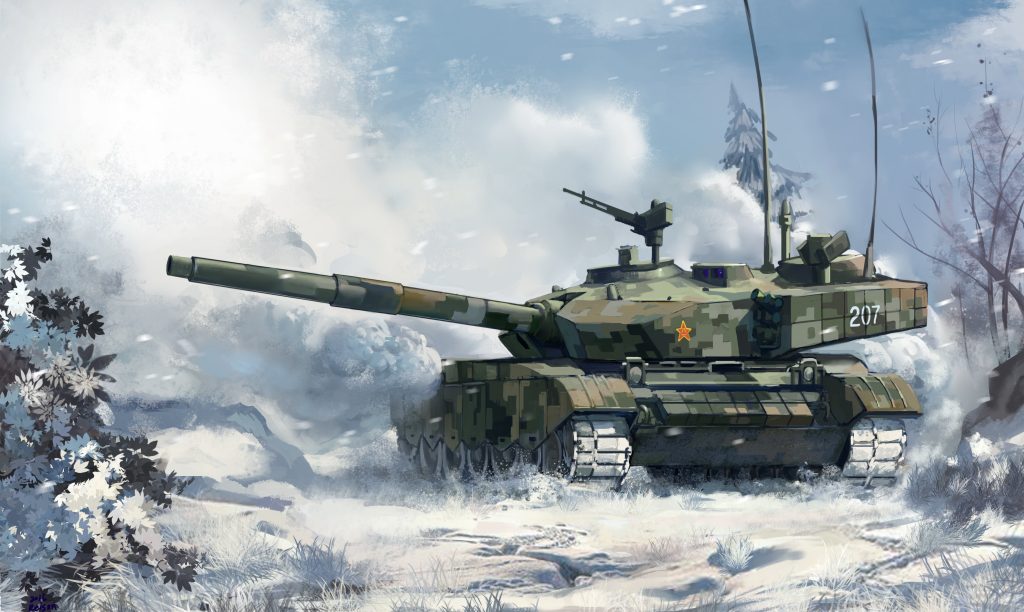
BLUF: China is probably preparing to provide lethal aid to Russian forces in Ukraine to flex its geopolitical influence and undermine Western objectives; material support short of Chinese troops will provide Russia with limited tactical advantages and prolong the conflict but is unlikely to turn the tide of the war in Moscow’s favor.
WHAT HAPPENED
U.S. Secretary of State Antony Blinken warned chief Chinese diplomat Wang Yi of consequences should China provide material support to Russian forces in Ukraine after the two met in Munich on 18 February.1 The Secretary of State stated in an interview with CBS News that Beijing was considering supplying Moscow with weapons and such a decision would have “serious consequences” for U.S.-China relations.2 Blinken’s public warning shot indicates Chinese plans to provide lethal aid to Russian forces in Ukraine are in the works, if not already underway.
WHAT IT MEANS
China’s intention to escalate its support for Russia’s invasion of Ukraine signals a shift in Beijing’s strategy and its risk calculus. Despite President Xi Jinping’s 2022 pledge of a Sino-Russian partnership “without limits,”3 there is little evidence of direct Chinese aid for Russian forces. Eastern Europe provides little strategic importance to China, and the high costs associated with reinforcing Russia’s military exploits have kept Beijing at arm’s length.
But a year into the war, Xi may be ready to gamble on the West’s unwillingness to impose economic sanctions on China should Beijing gradually ratchet up its involvement. Washington’s and Europe’s deep trade relationships with China mean the Chinese Communist Party is unlikely to receive the same international backlash that has crippled the Russian economy. Pain compliance through sanctions requires an all-inclusive package and a united, multi-lateral front; heavy dependence on Chinese imports would mean fragmented support for a sanctions resolution, especially if Beijing’s involvement remained ambiguous and plausibly deniable.
As the war drags on, Eastern Europe becomes a battleground for ideologies and an opportunity for China to antagonize the U.S. and NATO. China needs Russia to win in Ukraine, or at least to save face with a favorable peace deal. A net win for Beijing’s largest and closest ally would serve as a notable check against Western power and demonstrate the superiority of Eastern autocracy over Western democracy. Conversely, a Russian failure would award the U.S. a proxy victory, strengthen the NATO alliance, codify a coalition of Western-aligned non-NATO countries, and promote a united front for the defense of Taiwan.
WHY IT MATTERS
China’s involvement in Ukraine could turn Eastern Europe into a proxy battleground between Washington and Beijing.
A year into the war, the best Vladimir Putin can hope for is to push Ukrainian forces west and gain enough territory to force Kyiv into an untenable stalemate. From there, Moscow can attempt to solidify its gains through a favorable peace agreement.
China will probably grant Moscow most of its hardware requests in hope of reaching such an agreement. Low-grade backing from Beijing could include cyber and electronic warfare support, munitions, air defense systems, and unmanned aerial vehicles to aid in Intelligence, Surveillance and Reconnaissance (ISR) and targeting. China may even go a step further and provide much needed armor to counter the U.S. M1 Abrams and German Leopard 2 tanks that were promised to Ukraine in January.4
If Russia sweetens the deal with rock-bottom discounts on oil and gas, or if tensions escalate between the U.S. and China, Beijing may be willing to provide Moscow with air assets – something the U.S. and NATO have thus far been unwilling to provide Kyiv. Chinese aircraft could give Russia the elusive air superiority it desperately wants but has failed to achieve.
Even with technical support, armor, and control of Ukraine’s eastern skies, the conflict will remain a war of attrition. Outnumbered Ukrainian troops enjoy a decisive advantage thanks to wide-open Western supply lines and a blank check from the U.S. and NATO. Chinese material support will provide limited tactical advantages and prolong the war but is unlikely to significantly slow Russia’s casualty rate.
Russia’s casualty statistics are staggering: as of February, senior U.S. officials and the U.K. Ministry of Defense estimate 60,000 have been killed5 and 200,000 wounded,6 while Russian ground forces regularly sustain nearly 1,000 casualties per day.7 The losses leave Moscow with a combat ineffective regular army and no choice but to backfill its ranks with hundreds of thousands of poorly trained conscripts and convicts.8
Xi, however, will stop short of sending troops – the one thing Moscow can’t get enough of. Beijing has no plans to cede its moral high ground as an international abitur of peace and will try to preserve plausible deniability of its involvement in Eastern Europe.
China is no doubt weighing its options, all of which are likely to be too little, too late. The West’s decision to act early and decisively in the war gives the U.S. and NATO the benefit of not having to mince words about its clear-eyed policy in Ukraine, and the advantage of strategic deterrence. While Beijing contemplates its next move, the decimation of Moscow’s military serves to remind Xi that aggression or any attempt to change the borders of a sovereign nation may be too costly an endeavor.
Bryan A. is a former Force Reconnaissance Marine and Intelligence Officer at CIA. He currently serves as the Vice President of Special Programs at Hayes Group International.
Citations
- Person, and Michael Martina Humeyra Pamuk. “Blinken Warns China’s Wang Yi against Aiding Russia in Ukraine.” Reuters. Thomson Reuters, February 19, 2023. https://www.reuters.com/world/china-swipes-hysterical-us-global-security-gathering-2023-02-18/.
- “China Considering Providing ‘Lethal Support’ to Aid Russian Invasion of Ukraine, Blinken Says.” CBS News. CBS Interactive, February 19, 2023. https://www.cbsnews.com/news/antony-blinken-china-russia-lethal-support-ukraine-face-the-nation/.
- “China Declared Its Russia Friendship Had ‘No Limits.’ It’s Having Second Thoughts.” The Wall Street Journal. Dow Jones & Company, March 4, 2022. https://www.wsj.com/articles/china-russia-xi-putin-ukraine-war-11646279098.
- “Biden Announces Abrams Tanks to Be Delivered to Ukraine.” U.S. Department of Defense. Accessed February 23, 2023. https://www.defense.gov/News/News-Stories/Article/Article/3277910/biden-announces-abrams-tanks-to-be-delivered-to-ukraine/.
- “Russia’s Death Toll from Ukraine War Is as High as 60,000, U.K. Says.” The Wall Street Journal. Dow Jones & Company, February 18, 2023. https://www.wsj.com/articles/russias-death-toll-from-ukraine-war-is-as-high-as-60-000-u-k-says-14305ba5.
- “Soaring Russian Death Toll in Ukraine Gives Grim Insight into the War …” Accessed February 24, 2023. https://www.nytimes.com/2023/02/02/us/politics/ukraine-russia-casualties.html.
- Hagstrom, Anders. “Ukraine Killing Nearly 1,000 Russian Troops Every Day, Eliminates 5,000 in Single Battle.” Fox News. FOX News Network, February 14, 2023. https://www.foxnews.com/world/ukraine-killing-1000-russian-troops-every-day-eliminates-5000-single-battle.
- “Soaring Russian Death Toll in Ukraine Gives Grim Insight into the War …” Accessed February 24, 2023. https://www.nytimes.com/2023/02/02/us/politics/ukraine-russia-casualties.html.


